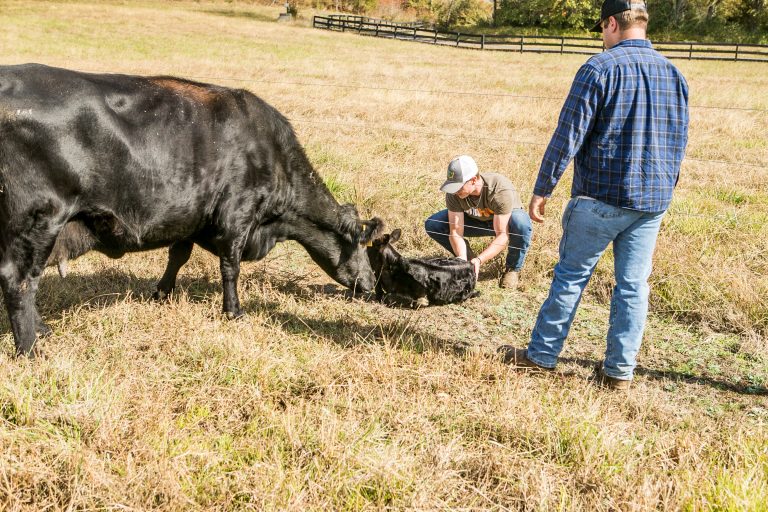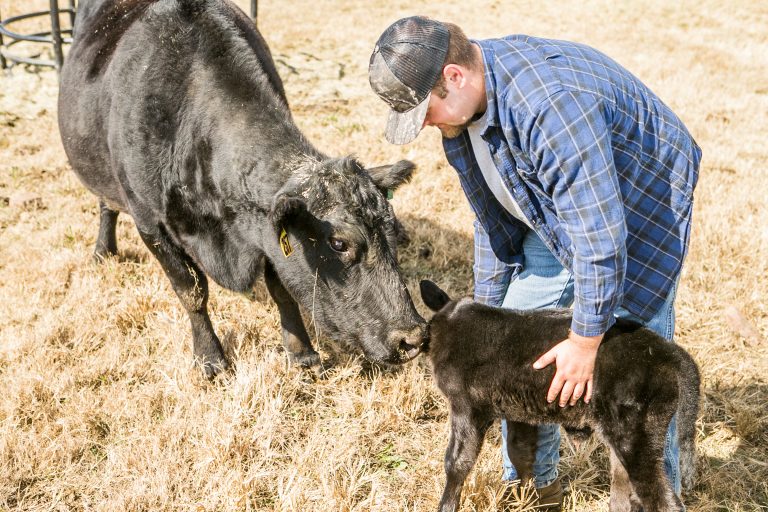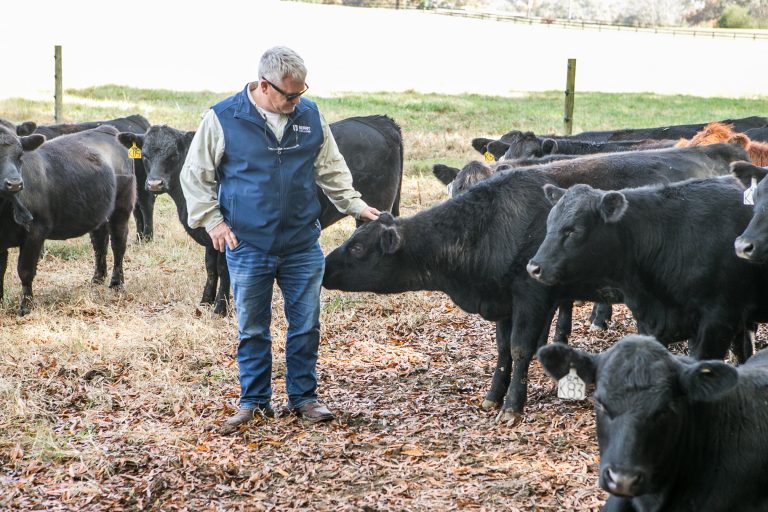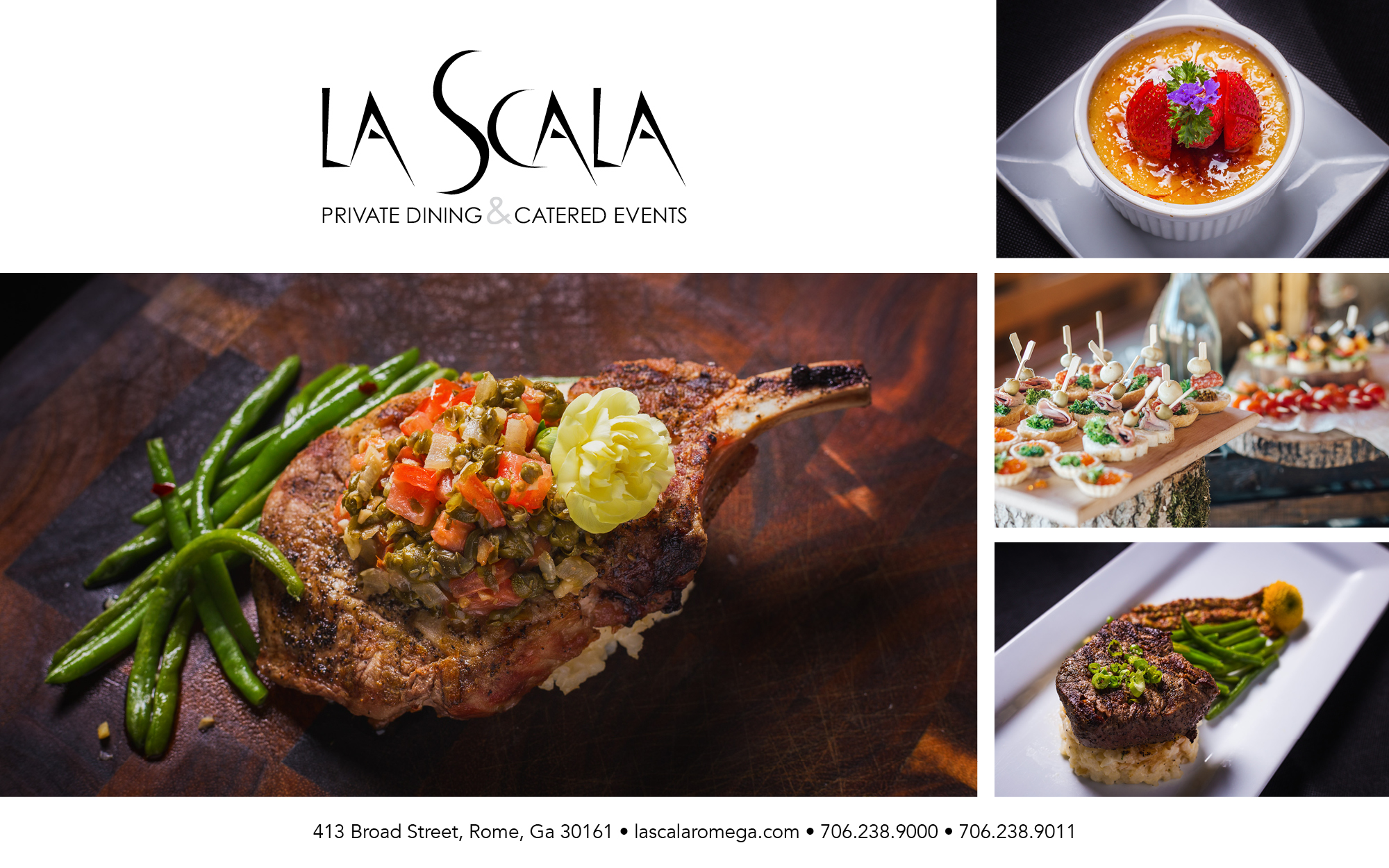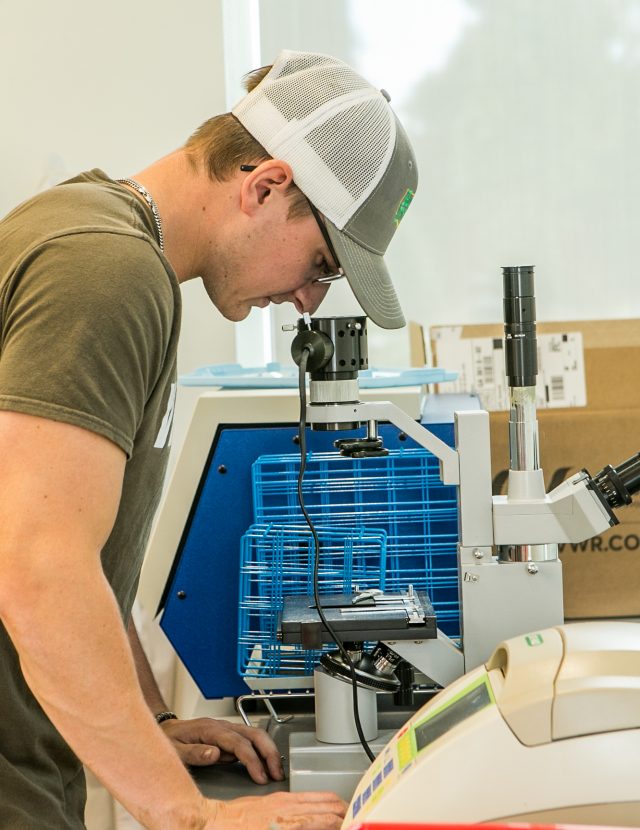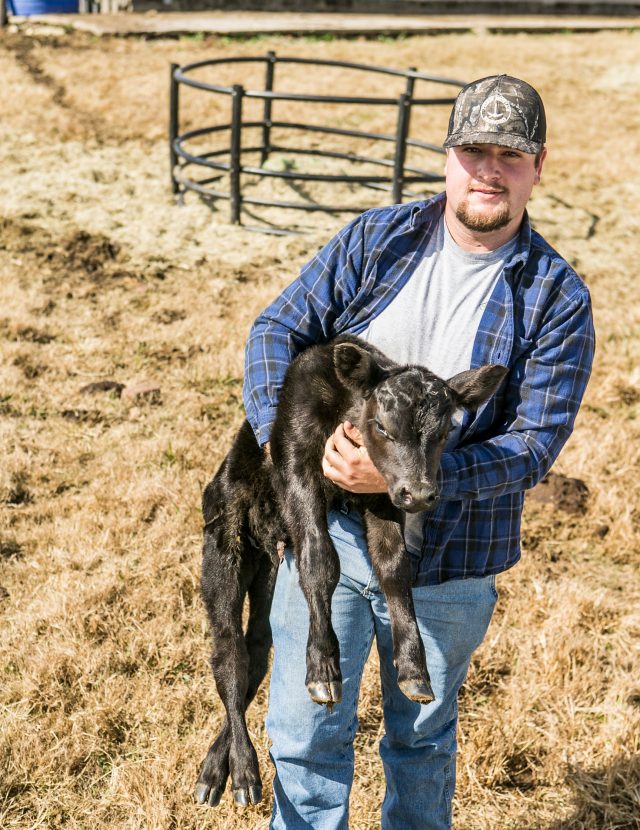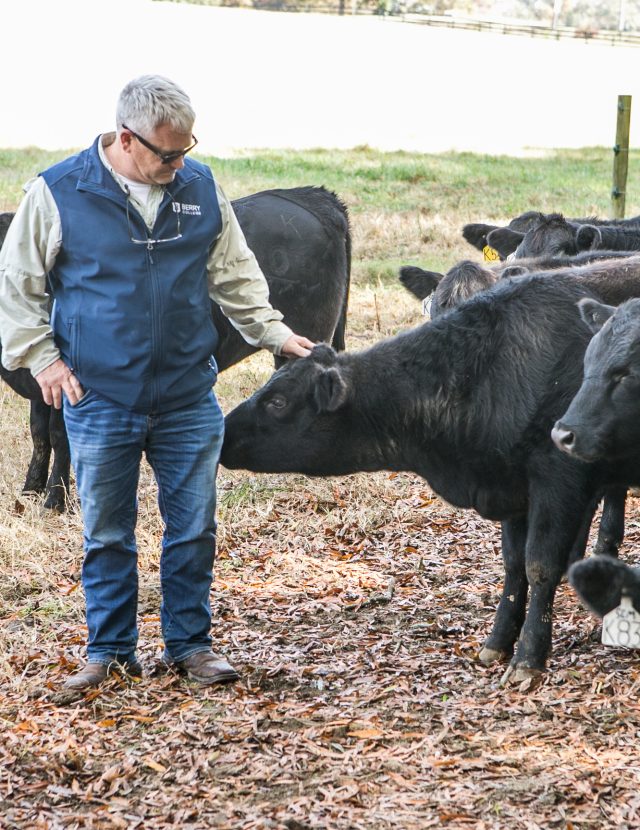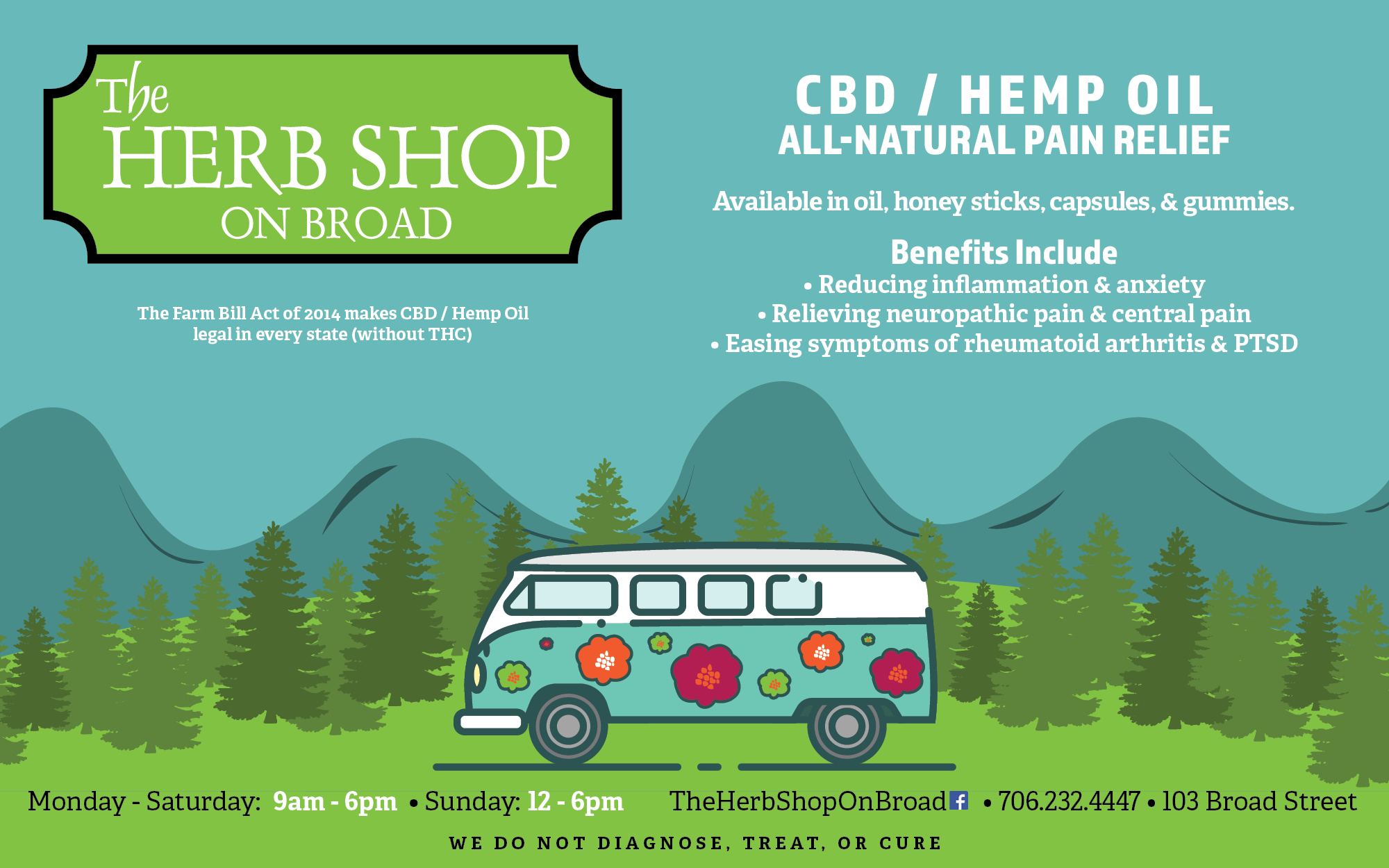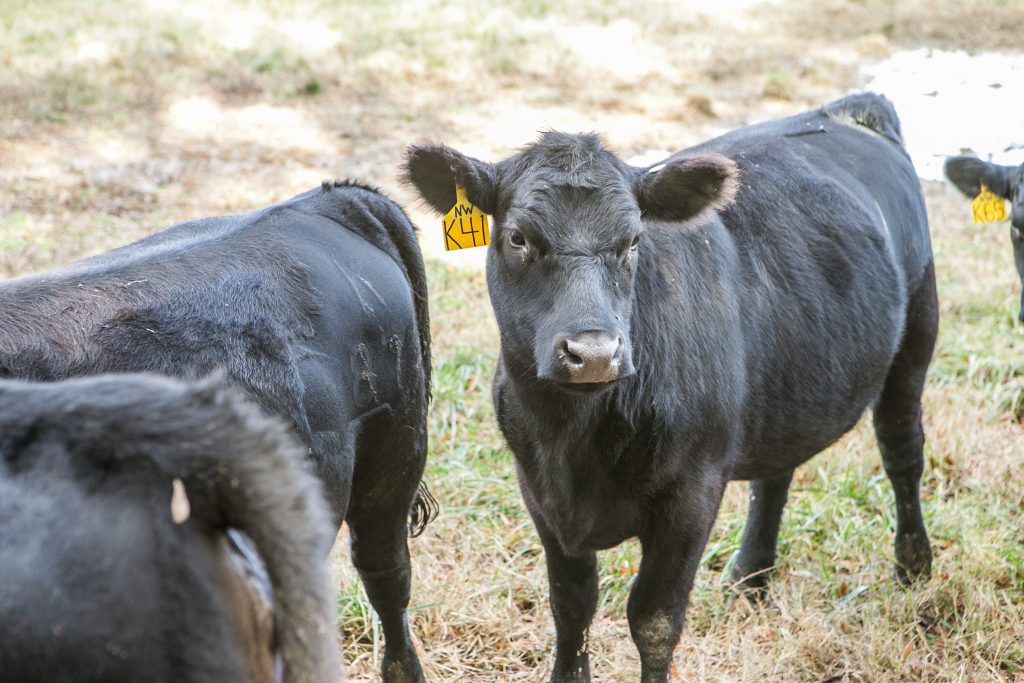
Photos Rob Smith
Americans love their steaks and hamburgers. Here, beef is big business. It’s also a huge opportunity when it comes to education. Few colleges and universities have mastered the marriage of learning and commerce regarding beef like Berry College of Mount Berry, Georgia. Farming was in the DNA of the school right from its earliest days.
When Martha Berry founded the Boys Industrial School in 1902 on the 83 acres she had inherited from her father, she provided a way for her students to gain an education and maintain their dignity by earning their tuition through work. Much of that labor was agricultural. Eventually, that school became Berry College, and in the 1950s it began building a herd of Black Angus cattle.
“Since then, our programs have grown and grown,” says Eddie Elsberry, director of operations at Berry Beef. “Animal Science is now the largest major at Berry College.” Decades after the introduction of that original herd, its descendants still dot the sweeping pastures of the beautiful campus.
It’s all about the students
“The animals here are for teaching purposes,” says Toby McCormick, beef operations manager. “We have a Black Angus herd and a cross-bred herd. They all exist for our labs and our hands-on programs. We have about one hundred and five students right now going through our labs, and maybe ten of them are not in animal science degrees.”
Caring for a Black Angus herd is no easy task. It can be time-consuming and exhausting, and it never stops. McCormick explains that the students manage all the cattle themselves. They feed them and tend to their needs seven days a week. “We have something going on every day,” McCormick says. “Fence work. Pastures. Maintenance. Trucks, equipment. The students do it all.” School breaks are sometimes a challenge for staffing, but Berry Beef always retains several students’ services year-round.
Whether with the care of cattle or the business of selling beef, the focus is always on learning. “If it weren’t for education—for animal science—we wouldn’t have any need for livestock,” Elsberry says. “Of course, we do want to show a profit, but really, at the end of the day, our profit is what the students learn. That’s what matters.”
Not all animal science students arrive on campus for the first time with a background in livestock. Some come from urban areas and have never visited a farm before. McCormick says, “I don’t have any requirements to come work with cattle—they just come to learn.” He adds, “One of the most rewarding parts of my job is when students walk in here on their first day having never even touched a cow, and then I get to see what they can do four years later.” Elsberry agrees: “We’ve had students who have never seen a live cow before they came here; they’ve only seen pictures of cows, but they want to come and work with cattle. We want our students to leave here with the experience that will allow them to be beef or dairy employees if that’s what they want to do. We give them the experience of the whole operation, not just how to run a weed eater or milk a cow.”
However, it would be a mistake to assume that all of Berry’s animal science students have their sights set on careers in agriculture. “In the Animal Science Department, we have mainly pre-vet students,” McCormick says. About twenty percent of the department’s students go into the industry, that is, farming, poultry, agribusiness, sales, etc. “Our acceptance into veterinarian schools is at about eighty percent,” says McCormick. “That’s twice the national average. And that’s due to the hands-on experience the students get here.”
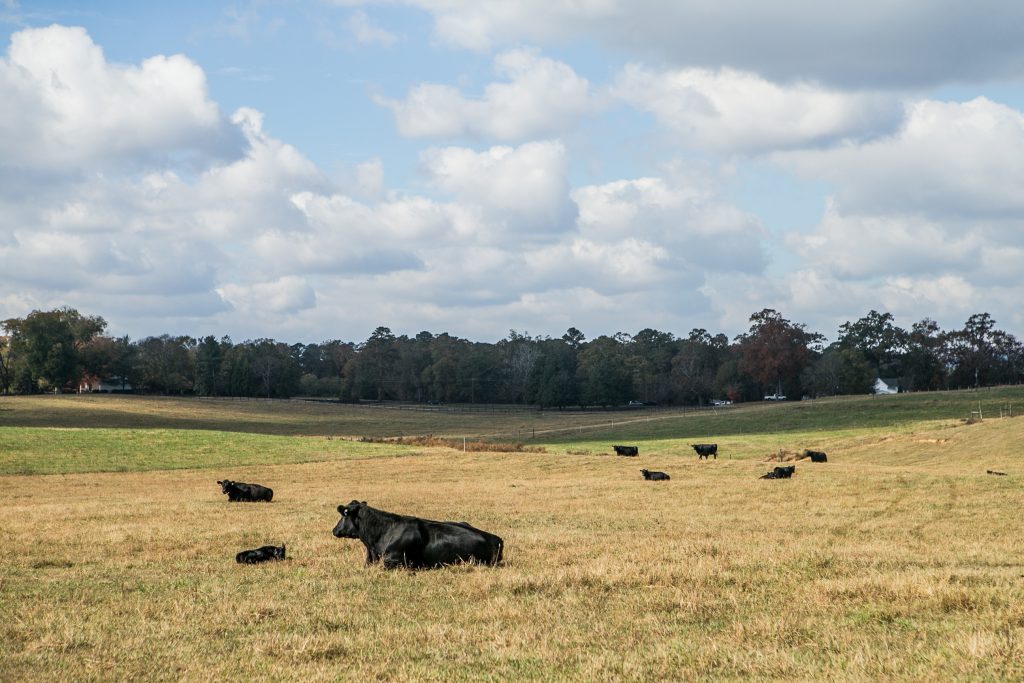
The business of beef
Through Berry Farms’ Angus Beef Enterprise, students learn the commerce side of cattle. They market and sell them, both as live animals and as cuts of beef. Customers can buy steaks, sides of beef, or a live cow to take back to their own farm. McCormick explains, “The Angus Beef Enterprise will have about forty-five to fifty steers at a time that will grow out on grass and grain, and we will process those.” The students periodically hold beef sales on campus. They also supply several local restaurants, and they sell to individuals as well.
“We sell beef year-round,” says Elsberry. “Our big sellers are markets, like Mountain Day here at Berry. But at any time of the year, you can call and say you want to buy some beef. You’ll talk to our student enterprise manager, and he’ll make arrangements for you to come by the Westcott Building and pick up your beef.”
The beef sold at Berry contains no added hormones or steroids and is processed at a USDA-inspected facility. Elsberry explains, “For us to sell a retail cut of beef, we have to have a USDA processor. Our students do not do the cuts.” He goes on to say, “Now, back in the day, Berry had a meat-cutting class, the Butchering Class. That was when this was a more vocational-style school.”
Even in the business of beef, the focus remains on the education of the students, giving them practical real-world experience. However, McCormick says, “this is an enterprise, too. That is for profit. It is a student-run business. They manage the cattle, conduct the sales. And they do very well.”
Why Black Angus?
In the United States, there are more than 70 recognized breeds of cattle. These include Holstein, Charolais, Hereford, Red Angus, Gelbvieh, Simmental, Limousin, and the iconic Texas Longhorn. But there’s a reason a driver motoring through the country sees so many black cows in the roadside fields. Black Angus is the most common breed of cattle in the nation. It is the breed of choice because it produces a well-marbled meat. McCormick says, “Marbling is the inner-muscular fat; Black Angus are naturally high-marbling.” This quality is valued by cooks, chefs, and Bar-B-Q pitmasters because it is what contributes so much to the quality of the taste of the beef and keeps it from cooking dry and tough.
“You want a cut of beef with good marbling,” Elsberry says, “because it’s one of the better cuts of beef you can get.” He adds, “For us, it’s also a historical thing. It’s what we hung our hat on back in the fifties. It’s been a very good breed of cattle to be in since then because it’s grown. Angus is a huge marketing tool—just the word itself ‘Angus’ is called ‘The Business Breed.’”
A breed above
When it comes to making sure the Black Angus herd keeps producing new calves every year, Berry Beef does not simply rely on chance and the regular course of nature. They don’t just mix the males and females in the pastures and hope all goes well; they get science involved. “For breeding, our operation is progressive in that we use artificial insemination, and we also use some embryo transfer,” McCormick says. “The students are involved in that process, but we bring in an embryologist to actually do the implants.” The specialist they use is an outside veterinarian, a board-certified embryologist. Elsberry says, “We want our students to see how it should be done.” McCormick adds, “And we do teach an artificial insemination course in the spring.”
Elsberry and McCormick are protective of the lineage of their herd, knowing that they are continuing a line that will go on for many decades to come. To that end, they are very selective about what they introduce into the gene pool. To ensure the proper range of genetic diversity and strength, they purchase bull semen from outside sources (“frozen genetics” is the industry term). These companies provide full profiles of the prospective bulls—from photos to all the relevant biological stats—which McCormick uses to match with the appropriate females to produce the optimum result. Elsberry says, “Toby’s operation is geared toward quality beef, quality genetics. We could do it without artificial insemination, but if you’re going to do it, why not do it right?”
“We haven’t purchased an animal here in thirty years,” says McCormick. The use of the frozen genetics system allows Berry Beef to keep its herd viable while avoiding the health risks that come from exposure to cattle from other farms. “We don’t bring in outside animals because it’s a biosecurity hazard,” McCormick says. “This is a closed herd; no animal comes in from the outside.”
Most of the cattle that provide the meat for Angus Beef Enterprise are steers, not bulls, while the females remain in the herd for reproduction. Explaining the difference between a bull and a steer, Elsberry says, “A steer is castrated. We keep intact males for breeding purposes. We also use the bulls for lab classes, where the students test the semen quality in their reproductive physiology courses. It all goes back to education.” Elsberry says that castration also improves the quality of the beef. “Bulls are tough,” he says, “and testosterone makes a tougher animal with less fat.”
As an aside, Elsberry notes that castrating the bulls is good for the farm’s physical environment, too. He says, “If you have a bunch of bulls running around, you’re going to be fixing fences all the time—they’re always tearing something up.”
Growing and gaining
The animal science program at Berry College moves ahead as the herd continues to flourish. Fall is the season of growth, the time of year when new life is added. “We’re calving right now,” McCormick says. “We’ll have one hundred or so calves here in the next forty-five days. They gestate around two-hundred eighty-three days, or nine months.” As with every other aspect of Berry Beef, the students are fully engaged in the calving process. McCormick says, “When a calf is born, the students will weigh it, tag it, and give it an EID [electronic identification device].”
“Obviously, we want to continue to grow the program here,” Elsberry says. “We want to incorporate new technologies as they advance, to keep up with all the current trends. What we do at Berry is one of the best, top-notch animal science programs in the nation. We have a work-experience program that I don’t think any other college in the United States provides. It’s a true hands-on daily operation. Also, we have a twenty-seven-thousand-acre lab here at Berry.”
For more information or to order beef, contact farm manager Hunter Foster at 706-378-2930, email AngusBeef@berry.edu, or visit berry.edu/studententerprises/angusbeef



